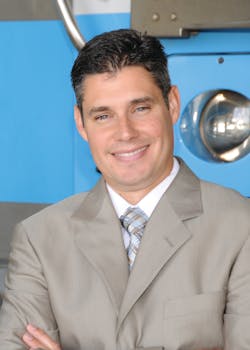Jeffrey D. Gonneville
Jeffrey Gonneville's passion for transit began while completing his engineering degree at the University of Massachusetts. As a bus technician and service manager at UMass Transit Services, he recognized the community reliance upon transit services and the complexity of providing safe, reliable transportation services in a city that is no stranger to a snowflake or two.
After receiving a Bachelor of Science in mechanical engineering in 1998, Gonneville embarked on his career in transit fleet maintenance with ATC Vancom in Detroit, Mich. He returned to Massachusetts in 2001 to become a senior technical project manager at the Massachusetts Bay Transportation Authority. His rise through the company included stops along the way as deputy division chief of bus maintenance, deputy director of bus operations, director of vehicle engineering and, his current role as chief mechanical officer.
Gonneville is responsible for the maintenance, oversight, long-term strategic planning and all other related tasks for maintaining a state of good repair for the MBTA's 210 light rail, 432 heavy rail, 1,000 bus and 1,100 non-revenue fleets. He manages and develops 860 employees within the mechanical division. This includes establishing practices and policies to ensure workplace safety, improve productivity and fleet reliability. His annual maintenance budget is $120 million.
Gonneville ascended into his current role knowing that the heavy rail fleet age was, in some cases, older than himself. He was keenly aware that increasing the level of customer and employee satisfaction was imperative all while improving the efficiency and availability of the fleet. Gonneville has worked tirelessly to recommend and implement changes in areas such as workforce size, equipment needs and expenses, capital expenditures, and facility efficiencies to meet all forecasted goals.
Notable accomplishments of Gonneville are projects that the customers can see, feel and touch. One such accomplishment is the introduction of new technology — compressed natural gas and emission-controlled diesel buses — to the existing fleet. The continued reinvestment in the bus fleet has strengthened the MBTA's commitment to providing new, clean, fuel-efficient and state-of-the-art buses to the customers and neighbors.
In keeping with the MBTA's "Go Green" philosophy, Gonneville introduced the first-in-industry emissions monitoring program. This technology allows for the identification of buses that are producing excessive emissions. Lastly, he has kept one eye on the future by introducing performance metrics and performing fleet assessments to prioritize capital investments for overhauls and replacements of the aged rail vehicle fleet.
Gonneville is actively involved with American Public Transportation Association, New England Passenger Transport Association and is a member of the Society of Automotive Engineers.
A Vital Team
"The transit industry captured my attention at a very early age. During my freshman year of college, I went to work for UMass Transit Services (UMTS), which serves the University of Massachusetts Amherst campus and the surrounding cities and towns. I started as a bus driver but quickly realized that my passion was in fleet maintenance. I was fortunate to have ascended into a supervisory position overseeing the servicing and cleaning of the bus fleet, which is the highest position that a student could achieve in the maintenance division. The managers that I had the privilege to work with mentored and taught me the transit management fundamentals that I continue to apply today.
"Public transit plays a vital role in the economy and more importantly, is a vital service to the cities and towns that we serve. Not only am I proud to be a part of the team that provides this service, but I get a tremendous feeling of satisfaction from implementing change that has a direct impact on the customer, the economy and the environment. Many of these changes are 'behind the scenes' but they make a difference on the well-being and the safety of our riding public and the neighborhoods where we operate. There are few professions where you get to be involved in so many significant decisions that impact the lives of many."
